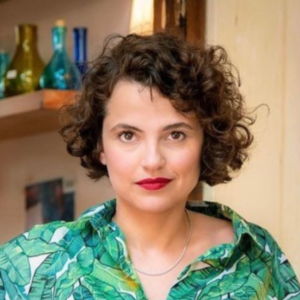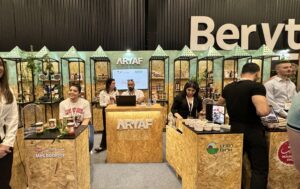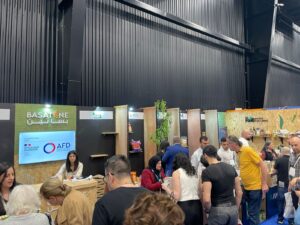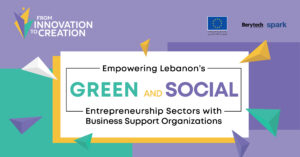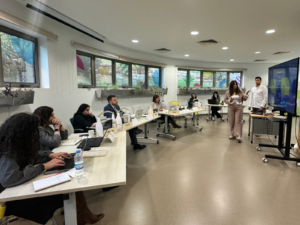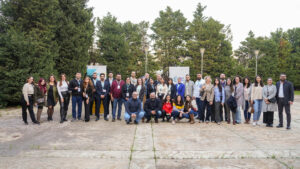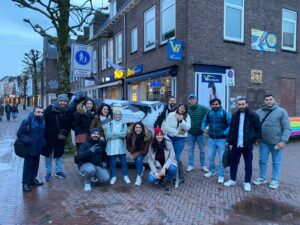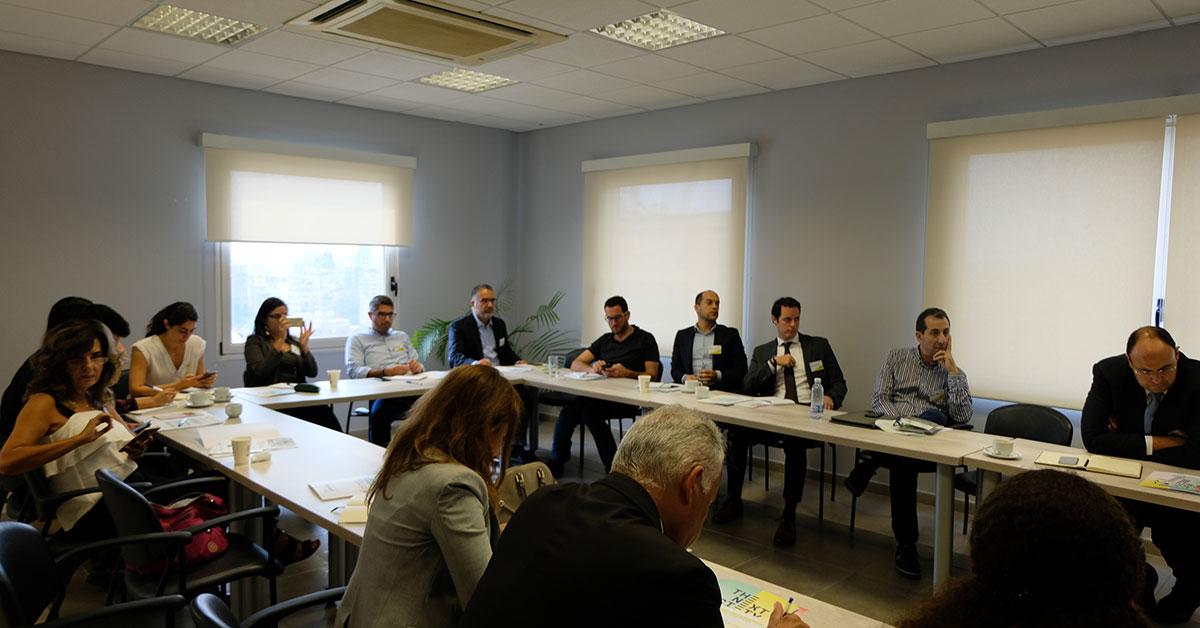 Following the first advocacy panel organized in November 2017, part of THE NEXT SOCIETY Project, Berytech organized the second advocacy panel meeting on September 2018 to discuss the priorities and recommendations for a national innovation strategy and define the objectives of a technical assistance mission that will be conducted by an expert in Lebanon in early 2019.
Following the first advocacy panel organized in November 2017, part of THE NEXT SOCIETY Project, Berytech organized the second advocacy panel meeting on September 2018 to discuss the priorities and recommendations for a national innovation strategy and define the objectives of a technical assistance mission that will be conducted by an expert in Lebanon in early 2019.
The meeting gathered Lebanese private sector representatives and investors, innovation stakeholders, relevant ministries and their agencies, the European Union Delegation to Lebanon as well as academic experts.
Objectives of the Advocacy Panels
The main objective of the first advocacy panel was to benchmark innovation in Lebanon with other Mediterranean countries. The idea of creating a National Innovation system coordinated by a centralized body and a valorization unit that ensures prototyping, patent, promotion, and commercialization was discussed during the last part of the meeting in the context of the Innovation framework.
The second advocacy panel aimed to discuss the progress that has been achieved by Lebanon and to identify the most promising sectors regarding innovation and competitiveness that should be addressed first by the project. The main objective was to suggest points to consider for the development of the technical assistance mission.
Interventions
As Mathias Fillon, coordinator of THE NEXT SOCIETY presented the ambitions of the project in Lebanon, inputs from the audience included an important highlight of the establishment of a new digital law for electronic transactions in Lebanon, which is currently in process, expected to add value to the digital economy.
Dr. Fouad Mrad, Executive Director of UN – ESCWA Regional Technology Centre, pointed at the need to incentivize researchers to develop projects with a commercialization potential and to plant the innovation seed in academia.
Dr. Maryse Louis, General Manager of the FEMISE, discussed the progress of innovation in Lebanon pinpointing the diversity of the actors in the innovation scene while confirming that the private sector is one of the most dynamic in supporting innovation. Dr. Louis recommended empowering the Lebanese ecosystem to further engage the diaspora, to strengthen the collaboration between the private and public sector, to improve the infrastructure, to set policies and regulations, and to encourage research.
Dr. Constantin Tsakas, General Manager of Institut de la Meditérranée (IM), and General Secretary of FEMISE presented the performances and the opportunities of the Lebanese industry.
The Presentations
- THE NEXT SOCIETY ambitions in Lebanon: First meeting’s findings and second meeting’s objectives – By Mathias Fillon
- Next Society Achievements by Berytech – By Mr. Ramy Boujawdeh
- Innovation in Lebanon: progress achieved and way forward – By Dr. Maryse Louis
- Performances and the opportunities of Lebanese industry – By Dr. Constantin Tsakas
- Building a bridge between Academy and Industry, featuring key impacts on the Lebanese economy and challenges faced – By Mr. Elias Bachaalany
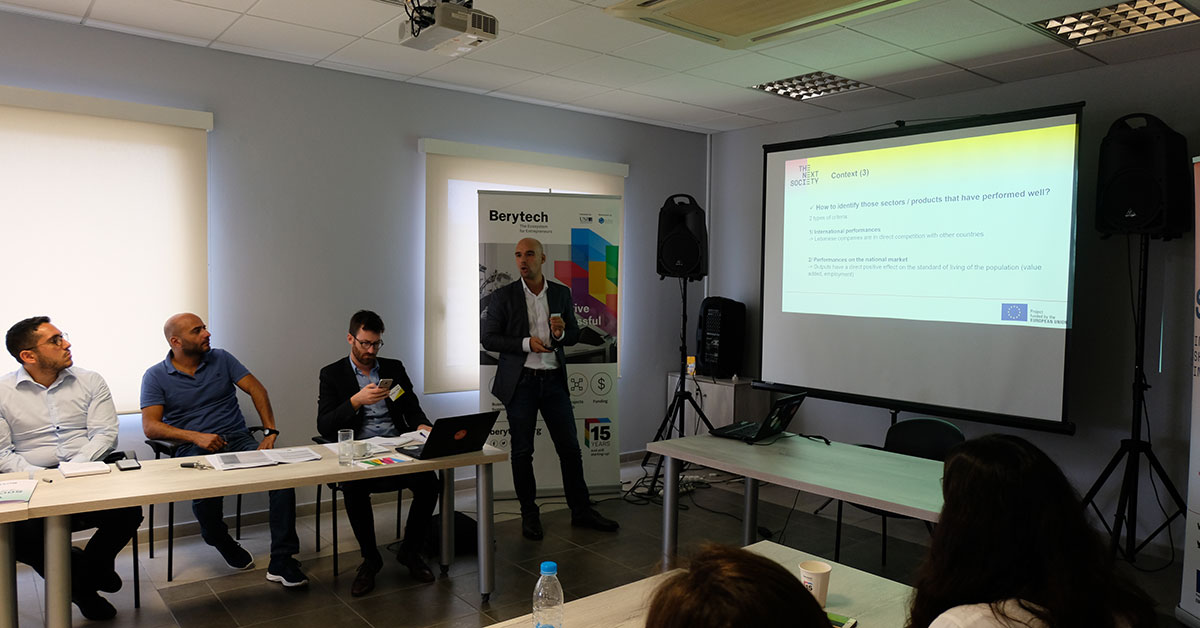
Input for the Mission & Objective of the Technical Assistance
Attendees formed a working group to come up with one objective for the assistance mission. First, they identified eminent challenges. These include: lack of support and lack of finance for applied research; lack of awareness and linkages between academia and industry; lack of synergy between existing initiatives; lack of data; lack of access to finance in R&D and commercialization; lack of access to markets; and lack of laws and regulations.
The solutions suggested to counter these challenges in the impending mission include:
- Setting sector priorities
- Facilitating the collaboration between universities and the private sector
- Facilitating the access to finance to end-of-year projects and applied research such as innovation grants for the youth (early stage)
- Setting up a framework for innovation under which entrepreneurs can be classified
- Providing technical and financial support to the entrepreneurial development
- Create an independent body for innovation management in order to increase access to finance etc.
- Setting up a strategy for innovation
- Creating a transparency committee
The involved stakeholders for these challenges include banks, lawyer associations, the association of industrialists, media, universities, commerce, business support organizations, business leaders and the diaspora.
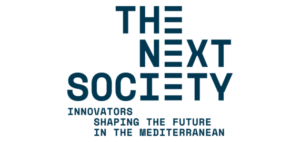 About THE NEXT SOCIETY
About THE NEXT SOCIETY
Represented by Berytech in Lebanon, THE NEXT SOCIETY is a movement initiated in 2017. It is supported by an open community of economic and societal actors (investment agencies, enterprises, innovation hubs, start-ups, NGOs, etc.) from Europe and Mediterranean countries.
It aims to strengthen innovation ecosystems and develop value creation as well as concrete solutions for shared prosperity in the Mediterranean, and tomorrow, in Africa.
The initiative is co-financed with €7 million from the European Union to deploy a 4- year pilot action plan. Until 2020, THE NEXT SOCIETY will directly reach more than 190 incubators, accelerators and clusters, and 300 growth companies, and will support nearly 60 technology transfer offices in their offers.




